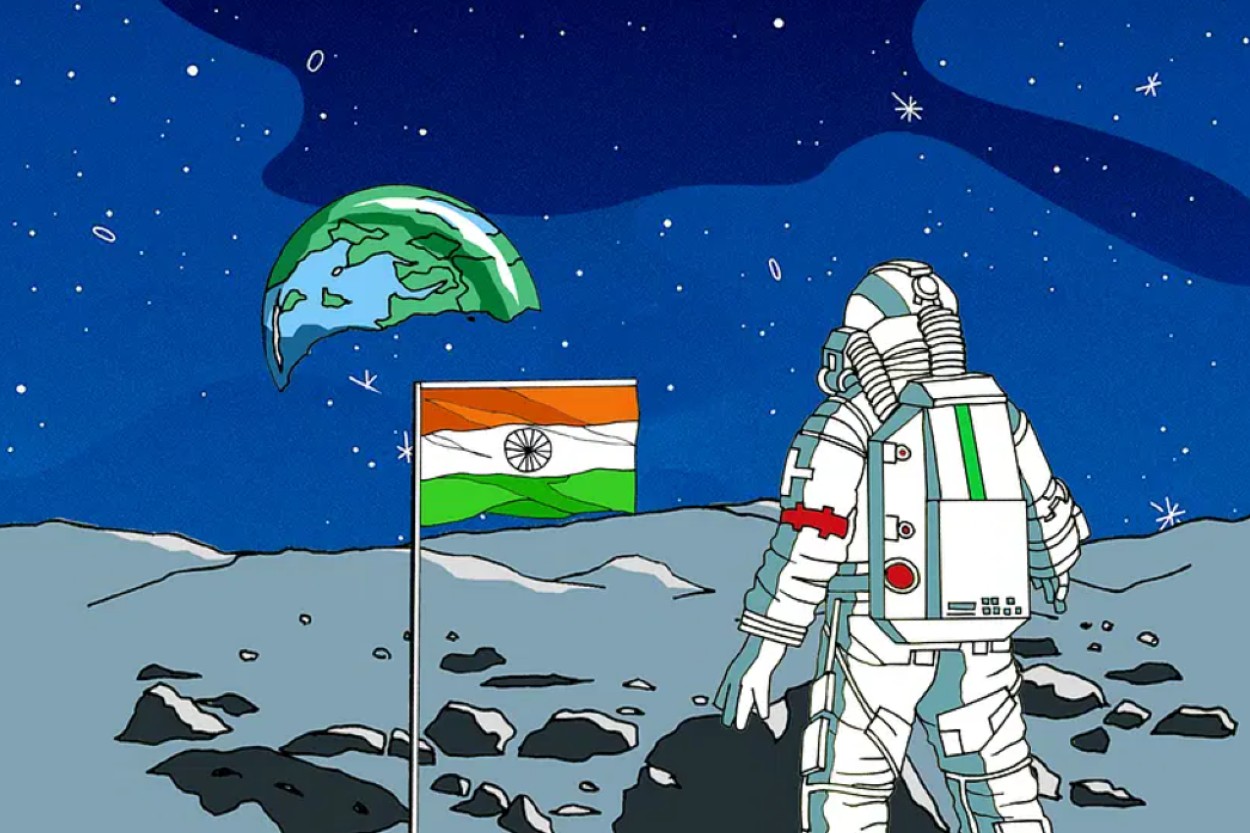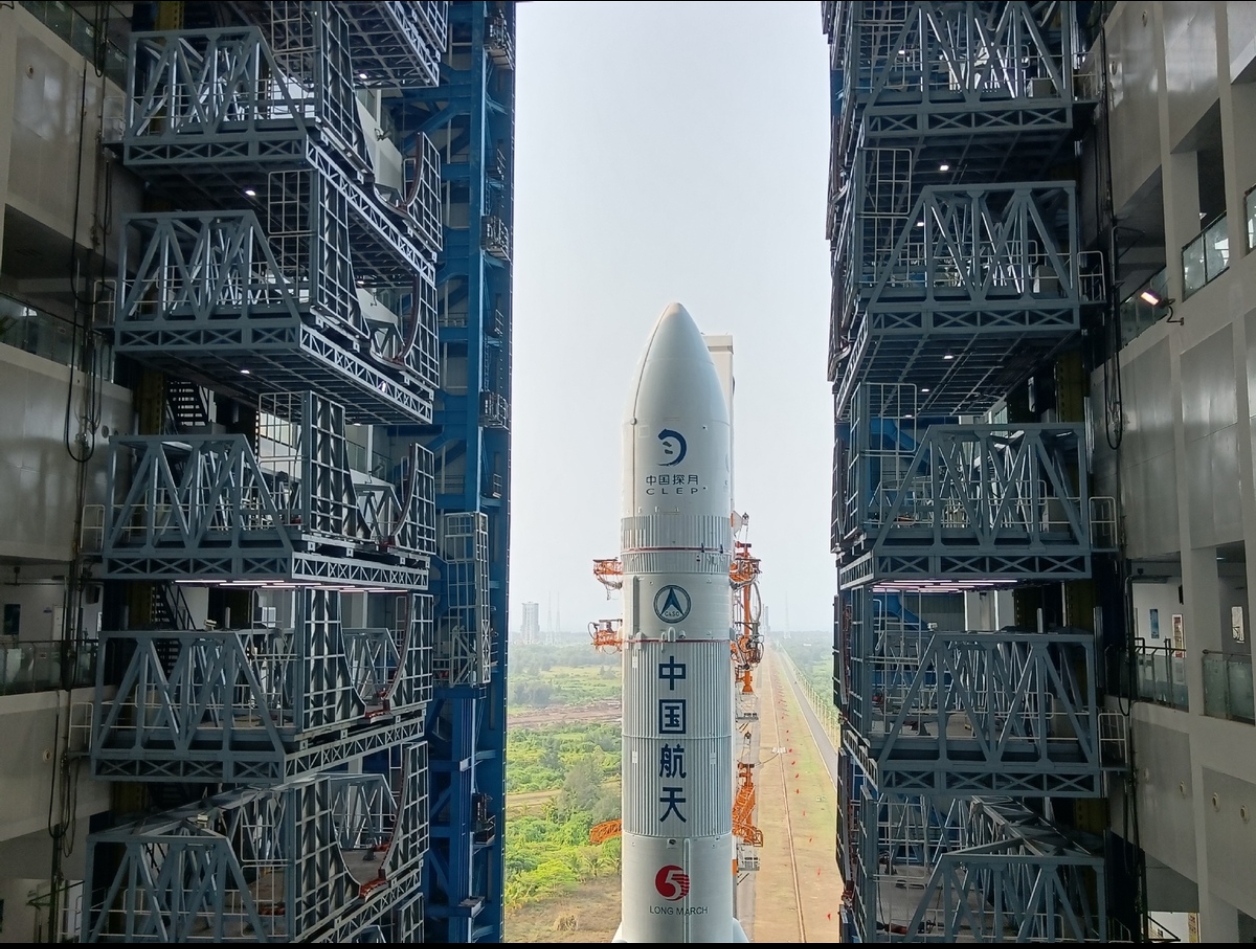Indian ISRO ‘Drives’ Pakistan’s Lunar Dream; SUPARCO To Hitchhike Ride To Moon In Chinese Spacecraft Today

Pakistan is hitchhiking a ride on the Chinese lunar mission Chang’e 6 to catch up with India’s successful lunar mission.
While the small satellite developed by Pakistan’s Space and Upper Atmosphere Research Commission (SUPARCO) will be clicking photos of lunar space, the Chinese lunar probe will bring back soil and rock samples from the darker side of the Moon.
India’s successful landing of Chandrayaan-3 on the Moon’s southern pole was widely praised in Pakistan. Various media outlets underscored how India managed the ambitious program on a shoestring budget and achieved something that even the space agencies of the US, Soviet Russia, and China failed to do.
The entire world cheered when the unmanned Chandrayaan-3 touched down just a few days after a Russian probe crashed in the same region. The success fuelled the dreams of reaching the Moon in Pakistan too.
Indian Space and Research Organisation (ISRO) was formally established in 1969 and has been one of the success stories of developing India. Interestingly, Pakistan’s SUPARCO was founded earlier in 1961.
Get AfriPrime Android Web View app....Click the link to Amazon app store to download https://rb.gy/3xek46
The agency, with eight years of head start, made Pakistan the third country in Asia after Japan and Israel to launch a rocket christened Rehbar-1. It launched the rocket in collaboration with NASA and the US Air Force (USAF).
The oldest agency in the Indian sub-continent, SUPARCO, sent its scientists to study at NASA. Its founding director, Abdus Salam, was the first and only Pakistani to win a Nobel Prize in Physics in 1979.
However, misplaced priorities pushed SUPARCO decades behind ISRO. The leadership of SUPARCO has often been military-focused, with Major Generals heading the agency. Funding challenges and misplaced priorities have also hindered its progress.
ISRO has launched 65 satellites and has achieved significant milestones, including missions to the Moon (Chandrayaan) and Mars (Mangalyaan), while SUPARCO has managed to launch only two satellites.
SUPARCO is using Chinese wings to bring the Moon within its reach. The maiden Lunar mission of Pakistan iCube-Q will be launched on May 3 aboard China’s Chang’s 6 lunar probe.
The Islamabad-based Institute of Space Technology developed the satellite in partnership with China’s Shanghai University SJTU and SUPARCO. It weighs 7kg, carries two optical cameras, and will capture images of the Moon’s surface. It features systems for altitude control, thermal management, and deep-space communication.
If successful, the data collected by this miniature satellite will provide valuable insights into the Moon’s topography, geological features, and potential resource deposits.
Change’6 is slated for lift-off around 1.30 pm (Indian time) from Wenchang Satellite Launch Centre on China’s Hainan Island. According to Pakistan authorities, the moon-bound spacecraft is a lunar cubesat, designated ICube Qamar, with a three-month mission span.
The Chinese embassy in Pakistan also confirmed the development and said the Chang’e 6 lunar probe will carry payloads from France, the European Space Agency, and Pakistan on a round trip.
“Pakistan Space & Upper Atmosphere Research Commission, #SUPARCO’s logo is seen on China’s most powerful rocket #LongMarch5! Together with China’s #ChangE6 lunar probe and payloads from France and #ESA, Pakistan’s CubeSat is ready to go to the Moon in just a few days!” the embassy said in a post on X.
According to the report, Chang’e 6 is China’s sixth lunar exploration mission. The mission, which will be launched from Hainan province in China, will collect soil and rock samples from the darker side of the Moon, making it the first to attempt such an endeavor. The Chinese lunar probe will collect up to 2000 grams of lunar material and return to Earth in a first-of-its-kind mission.

ISRO vs SUPARCO
The launch of iCube-Q has created a lot of excitement in Pakistan. Pakistan media has been calling it a good beginning for their space program.
An article in Pakistan Today recalls how India managed to launch its first rocket three years after Pakistan in 1963 and how it became a laughing stock as it was transported by a bullock cart.
However, today, India has become a global player in space exploration. ISRO has also launched a mission to study the sun’s corona and will be sending Indian astronauts into orbit by 2025.
In the 1970s, India launched its first satellite, Aryabhatta-1, and Pakistan launched its first satellite, Badr1, in 1990 with Chinese assistance. The actual decline in Pakistan’s space exploration started in the late 1980s when President Zia-ul-Haq cut off funding to major space projects as Pakistan shifted its focus to making atomic bombs.
In the following years, military generals replaced scientists as SUPARCO heads.
Dr. Salam, who won the Nobel Prize for Pakistan and founded SUPARCO, was disowned by the Pakistani state for being an Ahmadiyya, a minority among Muslims. This marked the decline of scientific advancement in the country.
SUPARCO has had its setbacks. The agency had to give up orbital slots because it failed to launch in time. The agency’s second satellite was launched in 2011. In February 2017, ISRO broke a world record by sending 104 satellites to space. SUPARCO is, for now, working towards Mission 2040 to acquire indigenous satellite-making and launching capabilities.
The article attributed the success of ISRO to India’s extraordinary ability, teamwork, cohesive leadership, and vision; and how its success has resuscitated SUPARCO.
- Questions and Answers
- Opinion
- Story/Motivational/Inspiring
- Technology
- Art
- Causes
- Crafts
- Dance
- Drinks
- Film/Movie
- Fitness
- Food
- Games
- Gardening
- Health
- Home
- Literature
- Music
- Networking
- Other
- Party
- Religion
- Shopping
- Sports
- Theater
- Wellness
- News
- Culture
- War machines and policy


